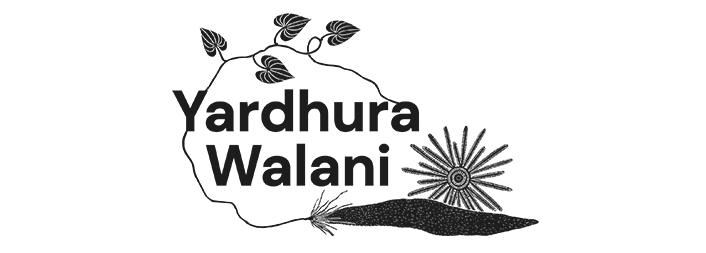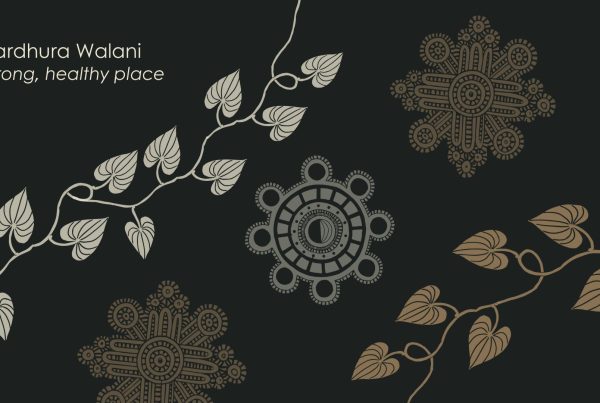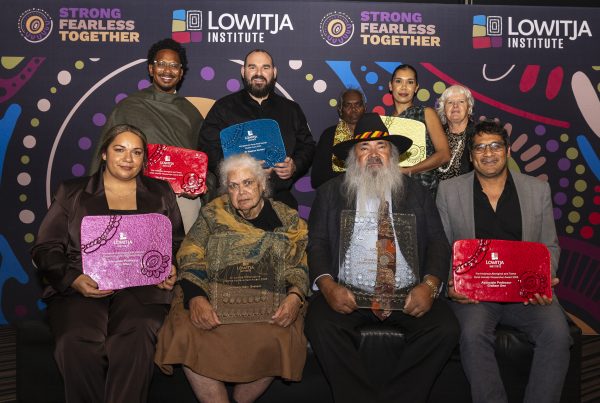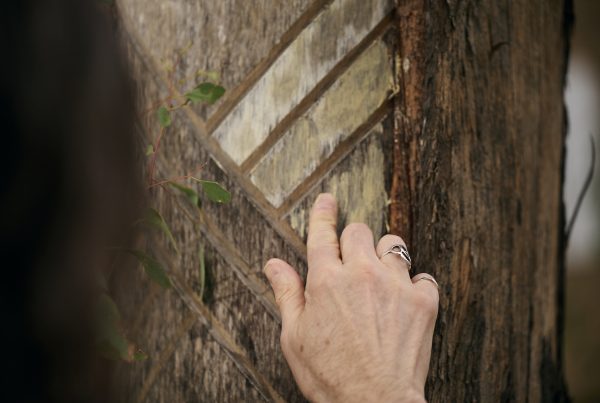The burning embers of a flame represents many things.
In Aboriginal and Torres Strait Islander cultures, fire represents strength and vitality. Fire is used to heal and manage land. It has heralded new growth and is vital for a thriving Country that cares for us.
This year’s NAIDOC theme is an acknowledgement of the strength and vitality of Aboriginal and Torres Strait Islander peoples. It also celebrates what ensures culture stays strong, Country stays strong and the people stay strong.
Keep the Fire Burning! Blak, Loud and Proud is a call for all to be unapologetically proud of their cultures and customs. In a year that has severely impacted Aboriginal and Torres Strait Islander peoples, this theme offers a reminder to mob everywhere to embrace exactly who they are as they continue with a strengthened and unwavering commitment to pursuing truth and justice.
At Yardhura Walani, we keep the fire burning through our research into health and wellbeing. In Associate Professor Lisa Whop’s words, “We look at the things that keep us well, and prevent the things that harm us – both physical and spiritually”.
This NAIDOC week, we spoke to two researchers at the Centre about what inspires them to keep the fire burning and what being ‘blak, loud and proud’ means to them.
Bobby Maher and Timothy Holt are two Yardhura Walani PhD students. Bobby, a Yamatji, Noongar, Kija woman conducts research on developing a framework for Indigenous-led program evaluation in Australia to ensure that program evaluations are ‘by, with, for, and as’ Indigenous. Tim, a Wakka Wakka and Bidjara man is exploring how the Maiam nayri Wingara Indigenous Data Sovereignty Principles can be applied to an Indigenous Data Governance model for the Australian Public Service.
Bobby finds her work at Yardhura Walani to be meaningful and empowering because of the work she does with communities and organisations. “I am constantly learning and growing and the bonus is that the work is fun and fulfilling!”
When asked what being ‘Blak, loud and proud’ means to Bobby, she has a strong answer ready.
“Standing strong in who I am as a Blakfulla; having big yarns and laughs with the mob; being active and looking after my wellbeing; stepping out of my comfort zone and supporting other mob to do the same; my love for family and country; and my determination for change in this country for all of us.”
For Tim, being ‘Blak, loud and proud’ is about recognition.
“It is about standing up and allowing our voices to be heard. Despite the significant setback of the voice referendum, we must maintain momentum and continue to move towards self-determination, which is our right according to the United Nations Declaration on the Rights of Indigenous Peoples.”
Tim’s research will help prevent harmful narratives created by Western data practices. He hopes that soon Indigenous data will be treated as a strategic asset, used for nation-building through economic empowerment initiatives. He hopes to harness the sense of pride people have in their cultural identities, values, practices and histories.
NAIDOC week is an opportunity to learn. One can learn, like Bobby does, about the Blak excellence in communities and how to restore knowledge systems that serve us collectively. Bobby recommends watching this documentary by TRIMOB that exemplifies how sport can create a collective that supports the health and wellbeing of a whole community.
NAIDOC can also be an opportunity to unlearn. In a year where we have witnessed harmful narratives being made mainstream, NAIDOC can be a moment where especially non-Indigenous people can unlearn their biases. Research conduct by Yardhura Walani shows that everyday discrimination could contribute up to half of the burden of psychological distress among Aboriginal and Torres Strait Islander adults.
Tim recommends reading the work of his great-grandfather, Albert Holt (Bidjara), who wrote two books about being taken from Country and mission life – Forcibly Removed and Murri on a Mission: Gunnan Gunnan. He also recommends works published by Aunty Jackie Huggins, including Auntie Rita (revised edition), Sister Girl: Reflections on Tiddaism, Identity and Reconciliation, or Jack of Hearts: QX11594.
For those who learn better through visual media, Tim suggests watching You Can Go Now, which examines the life of Aboriginal artist Richard Bell, described in the movie as “knows no boundaries” and “unashamedly, unapologetically black”.
This NAIDOC week, we at Yardhura Walani hope that you may find the fire within to build more solidarity with the Blak, loud and proud movement.





